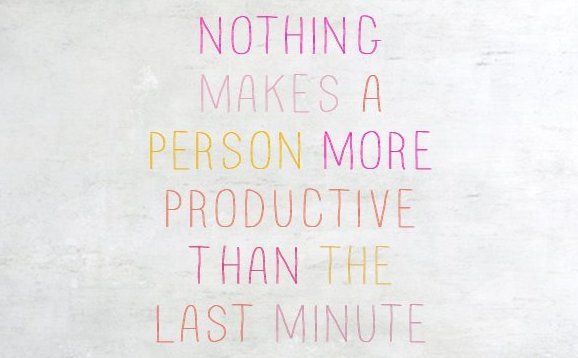How to Write Faster and More Effectively

Learning how to write effectively typically means slowing down to take your time, do the research and choose your words carefully. Although writing clearly and effectively is the goal for any writer, learning how to write faster can also be valuable skill. Here we’ll take a look at 10 tips to help speed up your writing and make it more effective overall.
1. Write What You Know
The best way to be able to write more quickly is to write on a topic you are already familiar with. Although this isn’t always an option, seize the opportunity whenever it comes up. Even if your assignment is on something you know nothing about, conduct some initial research to see if you do have a connection to the subject somewhere. For example, if your assignment is writing about the origins of the civil rights movement, use your own experience with discrimination or the experiences of friends and family as a basis to draw parallels to the early days of the civil rights movement with current issues of today. An essay on the impact of team sports can easily be connected to the summer you spent playing ping-pong or your own elementary school T-Ball team.
2. Dictate When Possible
There are a number of software packages that allow users to dictate directly into a word processing program. These programs can take some time to master and they adapt to your pattern of speech as you use them, so don’t expect perfect results your first time out. Instead of cracking it open as you’re beginning your big essay project for the mid-term exams, use it for a few weeks on other projects or just for fun in order to find out how to make it work more effectively. Once you’ve gotten the hang of it, you can use it to crank out essays, term papers and even your thesis in no time flat.
3. Don’t Worry About Mistakes on the Rough Draft
As you begin to write the rough draft, don’t worry about proper word choices, grammatical tense agreement or whether or not to use a semi-colon. Instead, simply get the thoughts, ideas and concepts on paper. Ignore that inner critic hissing on your shoulder and keep your hands moving. Try to keep up with the narrative you have in your mind. You can go back to clean things up and tweak verbiage later – getting the ideas you have onto paper will help your paper to develop more quickly.
4. Develop an Outline System That Works For You
Traditional outlines simply don’t work for everyone, but that doesn’t mean that outlines are worthless. Find a system that achieves the same goal but which fits your own writing or creative style. Writing a few sentences and using lists for each paragraph may be the best method for you, or simply jotting down ideas you can rearrange may be more your style. Find what works for you and use it.
5. Watch Your Adverbs
Using adverbs may bulk up your essay, but it also makes your paper less effective. A person isn’t very poor, they’re impoverished. Concentration camps weren’t very bad, they were horrific. The sun isn’t very hot, it’s scorching. Find better descriptions for common adverbs of degree in order to polish your writing.
6. Set a Timer
According to several studies, people work best with focused concentration for about 25 minutes at a time. Gab a kitchen timer, wind it to the 25 minute mark and GO. Write your heart out and don’t stop typing for the full 25 minutes. If you get stumped or hit a wall, move on to another section of the paper or write ‘What I really want to say is…’ and then finish that sentence. Even if you end up scraping half of what you’ve written, this type of focused creativity will not only get you farther into your essay, it can even result in some surprising gems of inspiration.
7. Focus on Writing Alone
When you write, do it alone. Don’t try writing while your friends are over, or while you’re watching a movie with someone. Make the time to sit alone and focus on your writing. Keeping clear of distractions will help you to focus more effectively and, in the end, getting it done will give you more free time.
8. Conduct Timed Research
Research can be the downfall of many students when it’s time to sit down and write. They may start with the best intentions but when conducting research online, it’s easy to click from one page to the next and suddenly find yourself playing a Super Mario emulator. Set a timer for your research, separate from writing time, and stick to it. If you find yourself still gravitating towards pages of distraction, set up a list of blocked websites through parental control software or time management tools such as LeechBlock or Cold Turkey.
9. Set Small Goals
Chopping your writing assignment up into smaller pieces can help boost productivity and speeds along the writing process. Dying for another cup of coffee? Finish this paragraph first. Want to get up and stretch your legs? Just pound out the rest of this outline so you know where to start when the break is over. Thinking of your assignment as a series of smaller milestones will help make it easier – and quicker – to finish.
10. Rewrite As You Edit
Combine your rewriting and editing step into one and clean up your spelling and grammar as you revise your writing. The best way to do this is to read your essay out loud, as if you were simply trying to educate or persuade a friend. Combining this final revision step can easily shave time off your total writing time and reading the essay out loud also ensures everything flows seamlessly.





